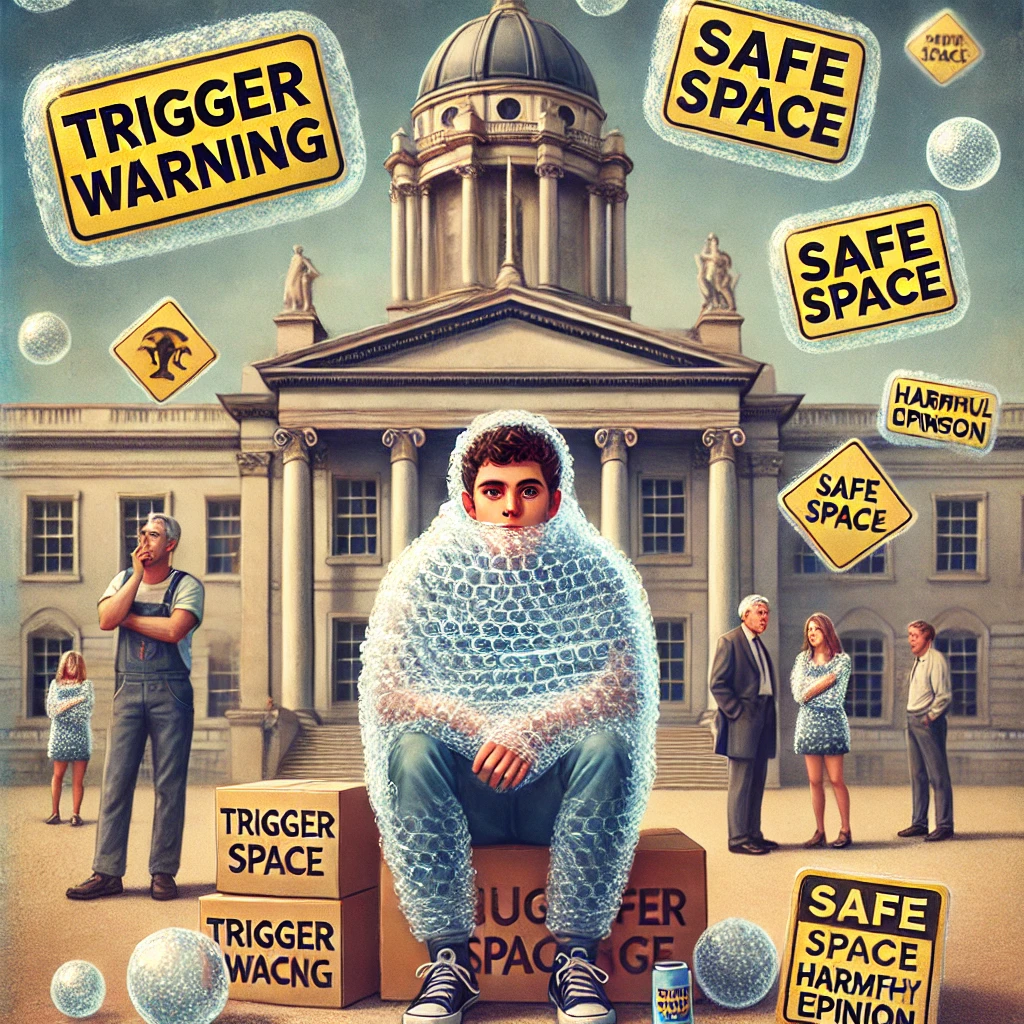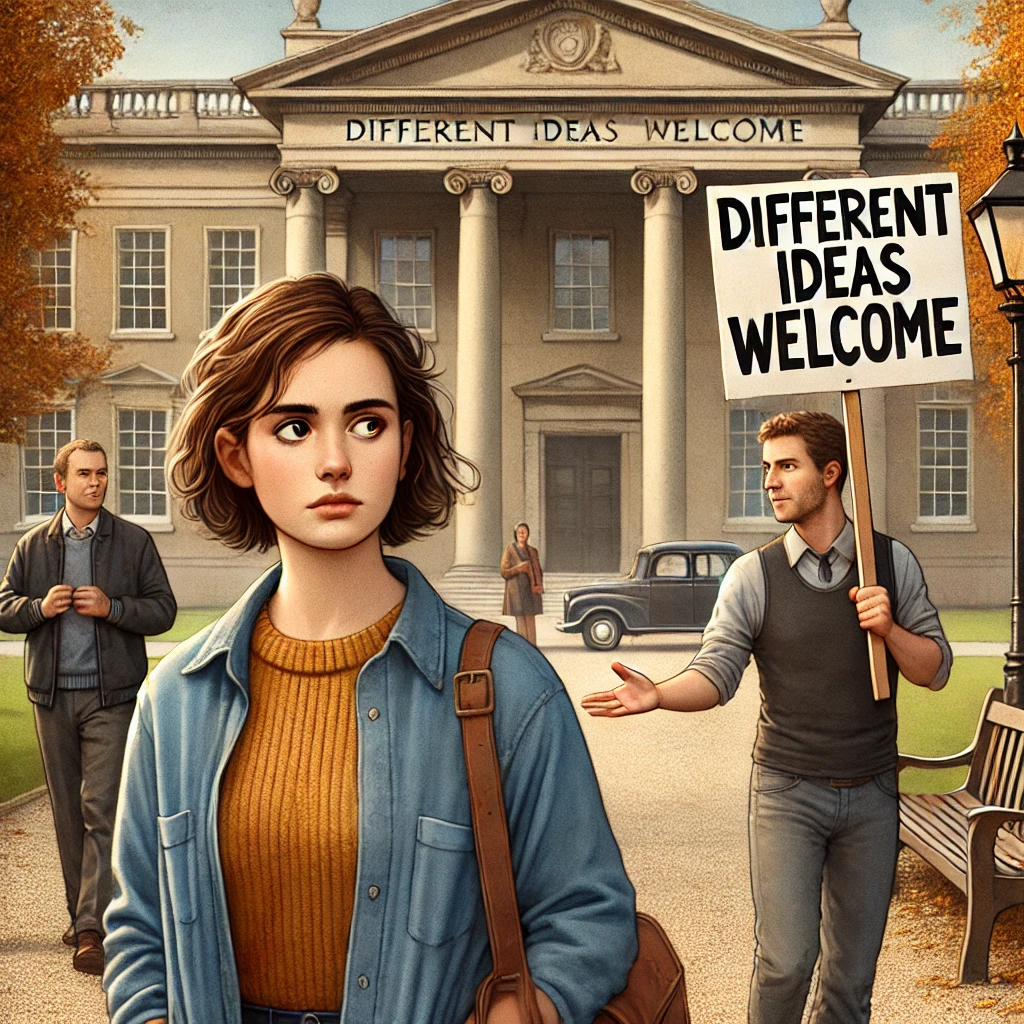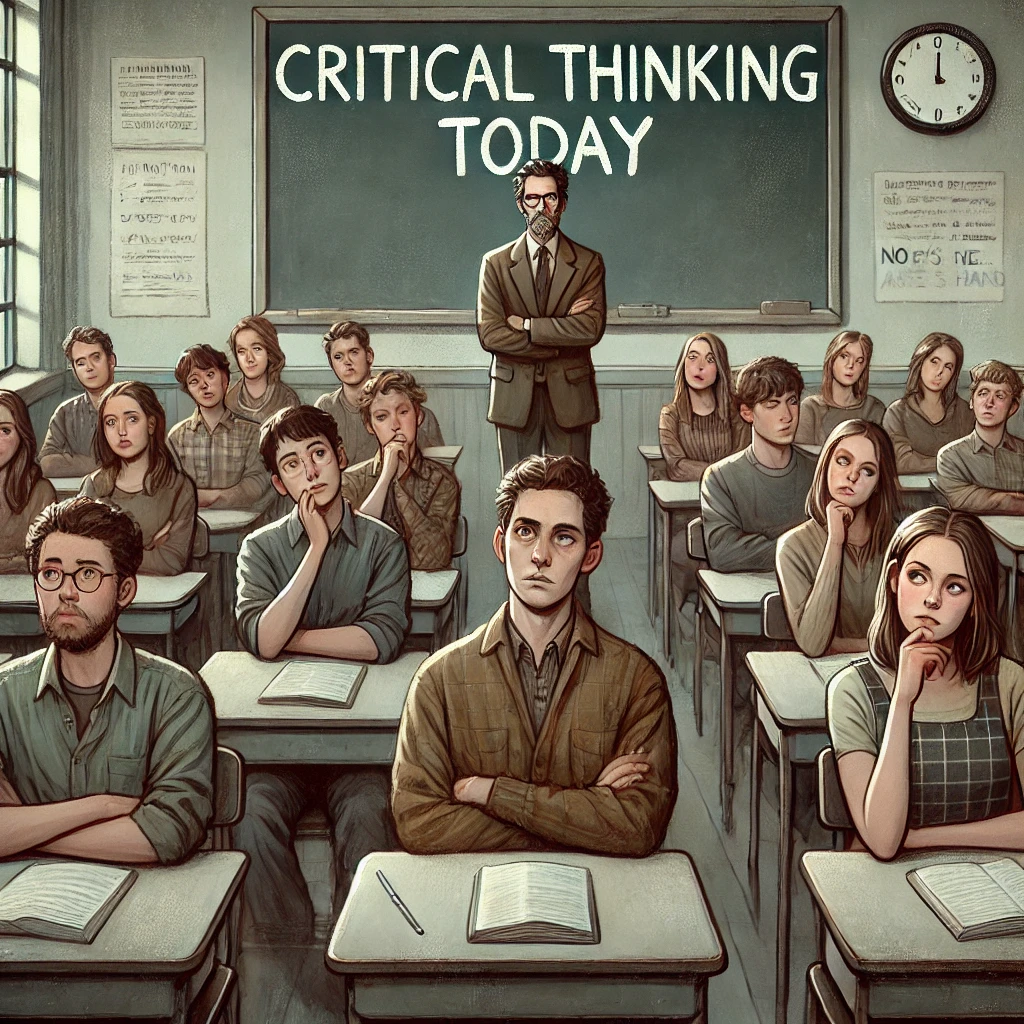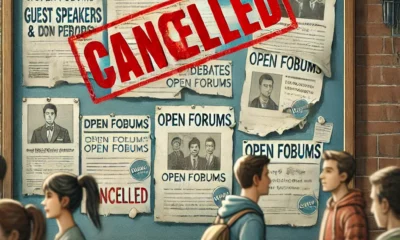
It was a typical morning at a suburban high school when a controversy erupted. A teacher had invited a local journalist to discuss the role of free speech in media, but some students, upset by the journalist’s past opinions, started an online petition to cancel the event. Soon, social media was ablaze with demands that the school protect students from exposure to “harmful” ideas. Faculty members, torn between upholding open discourse and respecting student concerns, struggled to find a balance. This kind of scenario, which plays out in schools across the country, is one of the many examples Greg Lukianoff and Jonathan Haidt explore in The Coddling of the American Mind.
The authors argue that a well-intentioned effort to shield young people from discomfort has led to an alarming decline in resilience, an increase in anxiety and depression, and a society that struggles to engage in productive debate. At the heart of their argument are what they call the “Three Great Untruths”—widely accepted yet deeply flawed beliefs that have shaped the way young people perceive the world.
The Untruth of Fragility: “What doesn’t kill you makes you weaker.”

In a suburban neighborhood, a mother watches her ten-year-old son climb a tree. Her first instinct is to call him down, fearing he might fall. Instead, she takes a deep breath and lets him continue. Years ago, children roamed freely, scraped their knees, and learned from their mistakes. Today, an overprotective culture has shielded young people from adversity, leading to what Lukianoff and Haidt describe as “antifragility”—the idea that just like an immune system, children grow stronger when exposed to manageable stress. The trend of eliminating risk has left many young people ill-equipped to handle even minor setbacks, fostering a culture of fragility rather than resilience.
The Untruth of Emotional Reasoning: “Always trust your feelings.”
In another part of the country, a high school junior scrolls through social media and sees a post criticizing a political figure she supports. Instantly, she feels personally attacked and upset. At school, she discusses it with a teacher who encourages her to examine why she feels this way and to engage in critical thinking. However, the dominant cultural message tells her that her feelings are absolute—that if something makes her uncomfortable, it must be harmful. Lukianoff, who has worked extensively in cognitive behavioral therapy (CBT), argues that this approach is counterproductive. He and Haidt suggest that challenging one’s own thoughts—rather than immediately validating them—can lead to stronger mental health. Yet, many young people today are being taught to avoid distress rather than learn from it.
The Untruth of Us vs. Them: “Life is a battle between good people and evil people.”
During a student government meeting, a debate erupts over a proposed change in school policy. One side accuses the other of being morally corrupt, while the other insists their opponents are destroying the values of the school. Instead of a discussion rooted in understanding, the conversation quickly turns into a battle of absolute good versus absolute evil. This polarization is a direct result of the “us vs. them” mindset that Lukianoff and Haidt warn against. They argue that when people see the world in terms of heroes and villains, they lose the ability to engage in nuanced discussions. Instead of seeking common ground, they vilify those who disagree with them, creating an environment where dialogue becomes impossible.
How Did We Get Here?

Lukianoff and Haidt trace these shifts in thinking to several key cultural changes. Overprotective parenting, driven by fear of both physical and emotional harm, has left children unprepared for the real world. The rise of social media has amplified outrage culture and fueled anxiety and depression among young people. Schools, once places of learning and debate, now prioritize emotional safety over intellectual challenge, leading to self-censorship and an aversion to opposing viewpoints. Political and social polarization further reinforce the “us vs. them” mentality, making it harder for people to engage in civil discourse.
Introducing the Series
This article serves as the introduction to a series exploring the themes presented in The Coddling of the American Mind. Each installment will delve deeper into the causes and consequences of the cultural shift described by Lukianoff and Haidt, providing real-world examples and practical solutions. The upcoming articles in the series will include:
- The Rise of Overprotective Parenting – Examining how modern parenting practices have contributed to decreased resilience and increased anxiety among young people.
- The Role of Social Media in Shaping Thought and Behavior – Analyzing how platforms like Instagram, TikTok, and Twitter amplify outrage culture and create an environment of emotional instability.
- The Dangers of Emotional Reasoning – Exploring how reliance on feelings over facts can hinder critical thinking and problem-solving.
- Polarization and the “Us vs. Them” Mentality – Investigating how political and social divides create an environment where people struggle to engage in productive discourse.
- The Decline of Free Speech in Educational Institutions – Reviewing how universities and schools have shifted from promoting open debate to fostering self-censorship and ideological conformity.
- The Path to Resilience: Solutions for a Healthier Generation – Presenting strategies for fostering intellectual humility, open-mindedness, and mental resilience in young people.
External Resources and Further Reading
For additional insights into the topics discussed, consider the following external resources:
- The Foundation for Individual Rights and Expression (FIRE)
- Jonathan Haidt’s Research on Moral Psychology
- Greg Lukianoff’s Work on Free Speech and Education
Conclusion
Lukianoff and Haidt’s message is clear: by overprotecting young people, we are doing them a disservice. The real world is full of challenges, and shielding them from discomfort only leaves them unprepared. True strength comes not from avoiding adversity but from facing it head-on. If we want to build a generation that is capable of critical thinking, emotional resilience, and meaningful dialogue, we must reject the “Three Great Untruths” and embrace a culture of intellectual and emotional growth.
This series will continue to explore these themes, providing deeper insight into the societal shifts at play and offering practical solutions for parents, educators, and students alike. Stay tuned for the next installment: The Rise of Overprotective Parenting.
Brent is the Managing Partner of CatchMark Technologies and a seasoned technologist with over 25 years of experience in IT leadership, cybersecurity, and technical operations. He began his career serving in the U.S. Army, where he worked extensively with electronics—laying the foundation for his lifelong passion for technology and problem-solving. Brent holds a Certified Information Systems Security Professional (CISSP) certification and currently leads CatchMark’s Cybersecurity and Tech Support teams. Known for his strategic thinking and hands-on expertise, he excels in guiding secure, scalable solutions and driving innovation across complex technical environments.
Must See
-


Opinion
/ 1 day agoThe Decline of Free Speech in Educational Institutions: A Threat to Open Discourse
The university auditorium was packed but free speech was tabled. A guest speaker, invited...
By Brent Raeth -


Community
/ 1 day agoCity of Whitehall Council Meeting Recap – June 10, 2025
The City of Whitehall Council met on June 10, 2025, to discuss a range...
By Kara Raeth -


Community
/ 2 days agoSummer Kick-Off Party to Support Whitehall Athletics
Get ready for a night of family fun, games, and community spirit—the 2nd annual...
By Amy Yonkman















